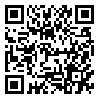BibTeX | RIS | EndNote | Medlars | ProCite | Reference Manager | RefWorks
Send citation to:
URL: http://jdisabilstud.org/article-1-539-en.html
2- Isfahan University
Objective: This research sets out with the aim of investigating the relation between state boredom and psychological burden of mothers with behavioral disorders of autistic children in the city of Isfahan.
Methods: Methodology of this research is descriptive and the type of the study is correlational. Statistical population included all children with Autism Spectrum Disorder (ASD) who visited autism centers of Isfahan during the year (2014). Moreover, the data sample consisted of ۷۰ mothers with autistic children (i. e. children with ASD) aged 3-4 years that they were drawn from one form of accessible sampling and mothers of the autistic children were requested to fill out some Questionnaires. Ruther Children’s Behavior (for completion by parents) Questionnaire has been designed to identify children with behavioral problems. The questionnaire is completed by the child's mother and has special instructions. After explaining how the scoring, mother should review the questionnaire and taking into account the views and knowledge of the child's behavior, she fill the questionnaire about her child. Psychological burden evaluation questionnaire from the Zarit Caregiver Burden Scale (Zarit and colleague 2003) that the most common measurement tool to evaluate the perceived burden of care provided by home care is taken. The questionnaire included 220 questions about the psychological burden and of individual, social, emotional and financial pressure that will be completed by caregivers. Multidimensional State Boredom Scale (MSBS) is designed by Fahlman et al 2013 that the first and only full-scale measurement of boredom mode. Points earned by participants, who have suffered much mental boredom as estimates show that earn high scores on the questionnaire indicates more mental boredom. In order to investigate the relationship between variables, we use Pearson correlation statistical tools to determine the type and degree of relationship between one variable with other and Kendall's correlation coefficient is shown with the symbol w and it is a non-parametric test to determine the extent of coordination between comments. And also to check the power of prognostic of variables used stepwise regression. When the stepwise regression is used that a researcher has several independent variables and wants to show its effects on the dependent variable, and which variable can predict the dependent variable, what is the contribution of each variable and are able to predict how much in total together. We used SPSS for analysis the data.
Results: The results of correlation coefficient showed that there exists a positively statistically significant relation between psychological burden and state boredom of mothers and children’s behavioral disorder with 0.281 and 0.285 respectively (p<0.05). Additionally, the results of stepwise regression analysis demonstrated that the best predictor of behavioral disorders in the first step was psychological burden of mothers. The relation between mother’s education, mother’s age and child’s age with autistic children’s behavioral disorders were not significant. Correlation coefficient between them were 0.06, 0.005 and -0.07 respectively. Also the best predictor among the subtests of state boredom was Inattention (p<0.05).
Conclusion: Drawing upon the results of this study using software , correlation illustrates it may be concluded significant relation exist between behavioral disorders of autistic children with the psychological burden and state boredom of their mothers and this in turn can exert considerable effect on establishing and continuation of a healthy emotional relationship between a child and his mother.
| Rights and permissions | |
 |
This work is licensed under a Creative Commons Attribution-NonCommercial 4.0 International License. |




